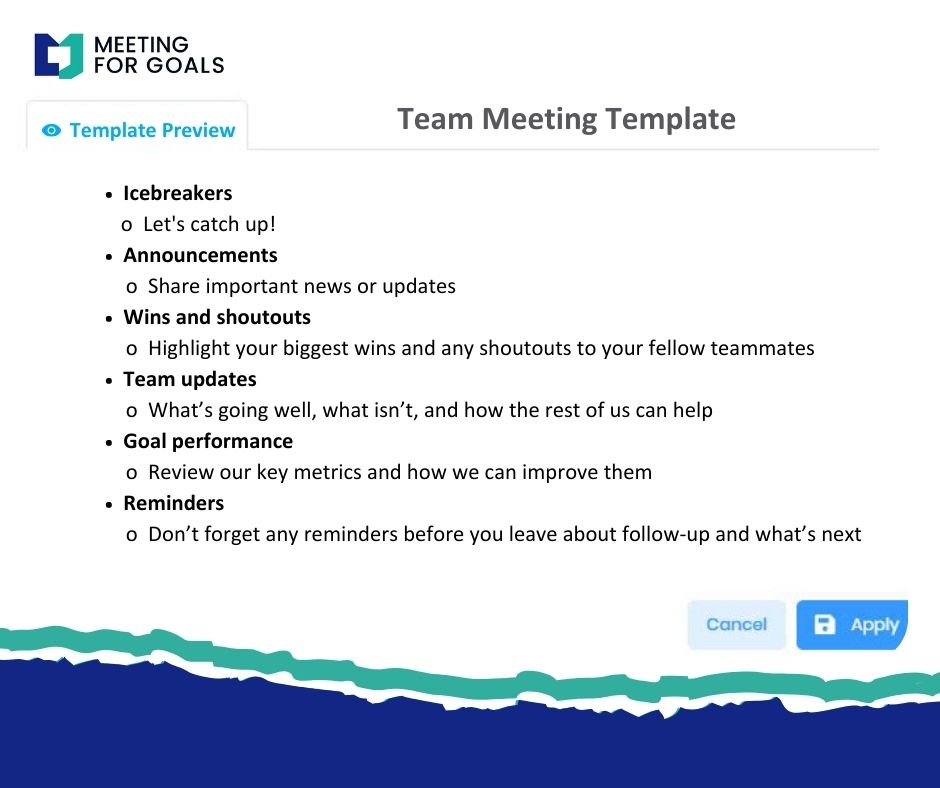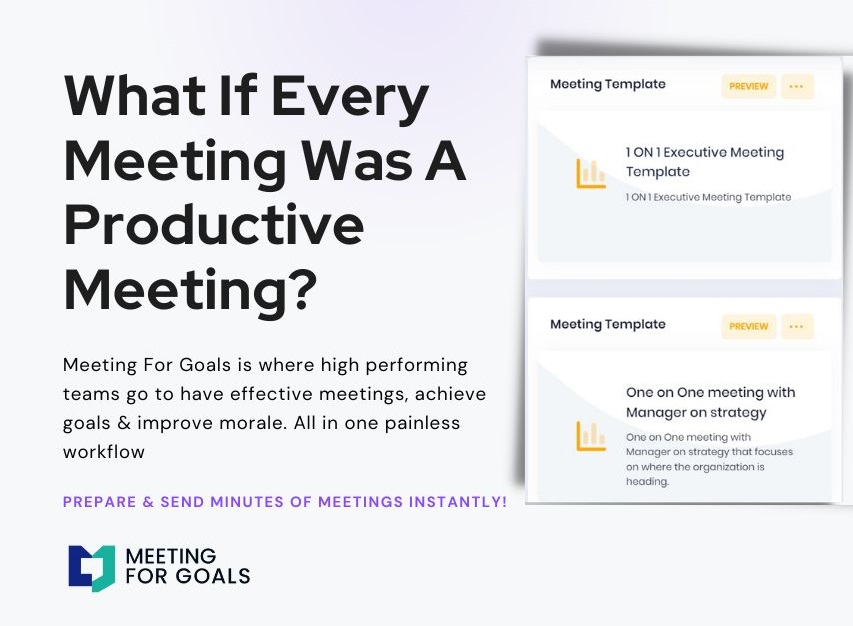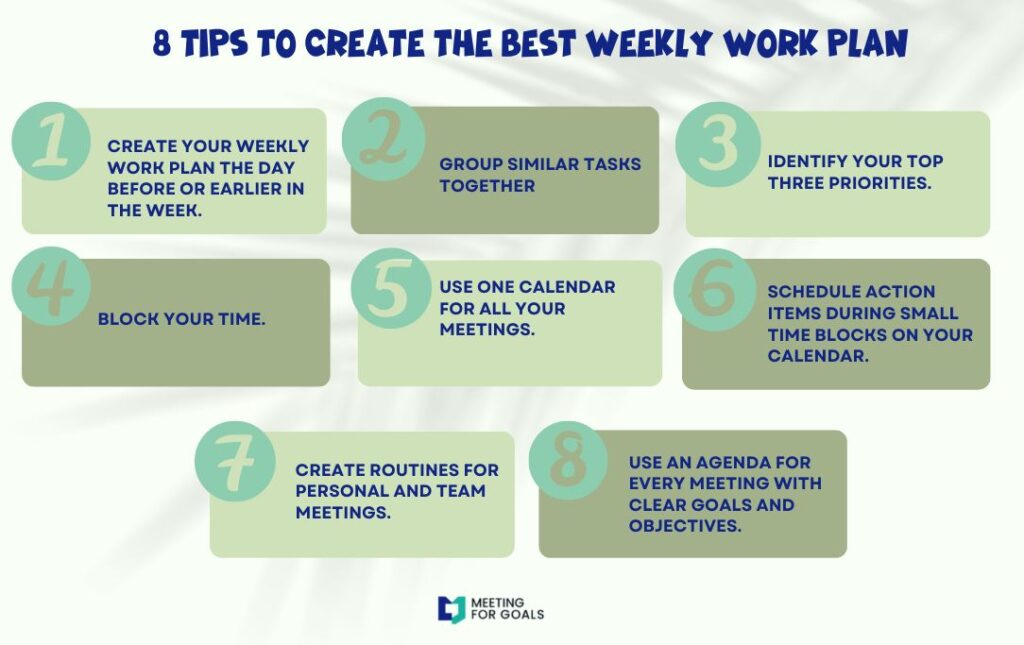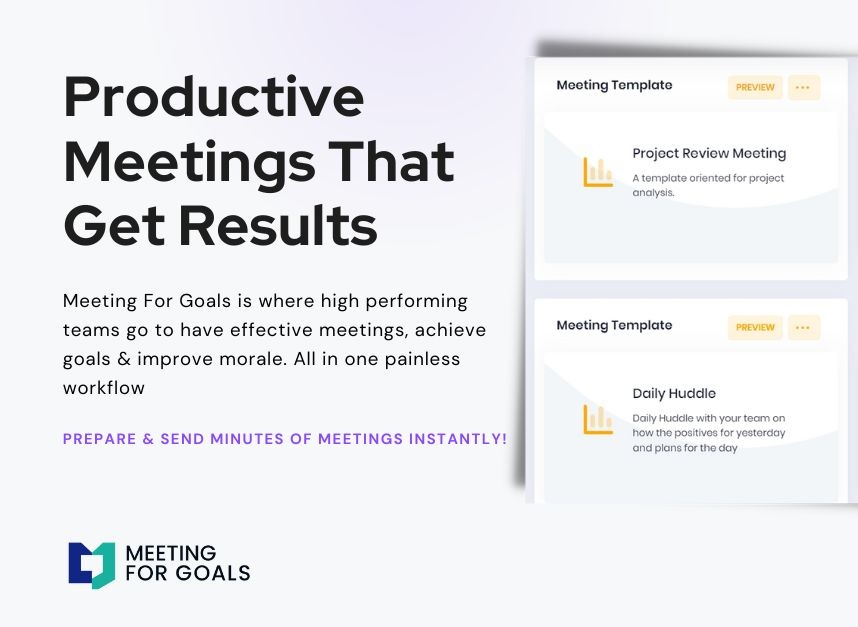How to Gain Knowledge: A Strategic Guide for High-Performing Teams
In today’s fast-paced business world, **knowledge** isn’t just power—it’s your edge. For high-performing teams, especially in companies with 40 to 70 employees, mastering the art of knowledge acquisition can mean the difference between meeting your goals or missing the mark.
In this guide, we’ll break down how to gain knowledge in a strategic, structured way that drives team performance and aligns with company objectives. We’ll show you how **Meeting For Goals**—our intuitive meeting management software—helps turn every meeting into a powerful knowledge-sharing engine.
👉 Want to supercharge your meetings? Sign up now at https://app.meetingforgoals.com/TenantRegistration/Register
📋 Looking for ready-to-use meeting templates? Explore them here: https://meetingforgoals.com/meeting_templates
Introduction
Today, **knowledge** is the fuel that powers innovation, decision-making, and productivity. Whether you’re a Director, VP, or part of the executive team, your ability to help your team learn and apply new insights is critical.
In mid-sized companies, where **agility** and **alignment** are vital, knowledge acquisition must be intentional. It’s not about cramming more into your calendar; it’s about creating a culture where learning is natural, collaborative, and goal-driven.
That’s where **Meeting For Goals** comes in. Our software helps teams run shorter, more productive meetings that are aligned with company goals. It ensures that knowledge isn’t just gathered—it’s shared, implemented, and tracked.
2 Minute Video
Watch a 2 minute demo of our meeting management software in action
Section 1: Why Knowledge Matters
Knowledge is more than information—it’s your team’s strategic advantage.
Intrinsic and Extrinsic Benefits
On a personal level, knowledge builds confidence and sharpens decision-making. It empowers team members to solve problems, innovate, and lead with clarity.
From a business perspective, companies that prioritize learning are more productive and innovative. According to **McKinsey**, organizations with strong learning cultures are 92% more likely to develop new products and 52% more productive overall. (Source: McKinsey & Company)
Knowledge and Better Decisions
Timely, relevant knowledge helps leaders make smarter decisions. A Director of Marketing who understands customer trends and competitor strategies can pivot campaigns effectively. A Product Manager who learns from past product launches can avoid costly missteps.
When teams share what they learn, that knowledge compounds. It creates a shared intelligence that drives better strategies and faster execution.
Team Performance and Morale
Deloitte reports that high-performing teams are 37% more likely to share knowledge regularly. These teams are more engaged, more aligned, and more likely to achieve their goals.
**Meeting For Goals** supports this by making knowledge-sharing part of every meeting. With features like goal-linked agendas, action tracking, and structured discussion prompts, your team won’t just talk—they’ll learn and act.
Adding an Agenda
How to add an agenda instantly on Meeting For Goals
Section 2: Pinpointing the Right Knowledge
Knowing that knowledge matters is step one. Step two is figuring out what kind of knowledge your team actually needs.
Spotting Knowledge Gaps
Start with an honest assessment. What skills are missing? What questions keep coming up in meetings? What’s holding back performance?
Use tools like skill matrices, feedback surveys, and project retrospectives to identify gaps. **Meeting For Goals** makes this easy by enabling you to set meeting agendas focused on performance reviews or learning assessments.
Aligning with Business Goals
Not all knowledge is equally valuable. Focus on what aligns with your company’s strategic direction. If you’re expanding into a new market, for example, prioritize learning about local regulations, customer behavior, and competitors.
In **Meeting For Goals**, you can link every meeting to a specific business goal. That way, your learning efforts stay on track and support the bigger picture.
Getting the Team Involved
Learning isn’t a solo sport. Ask your team what they want to learn. Use meetings to discuss learning goals and assign ownership of different knowledge areas.
For example, one team member might track industry trends, while another focuses on internal process improvements. This shared responsibility ensures broad coverage and keeps everyone engaged.
Section 3: Finding the Right Resources
Once you know what knowledge you need, the next step is figuring out where to get it.
Online Courses and Webinars
Sites like Coursera, Udemy, and LinkedIn Learning offer thousands of professional courses. These are great for technical skills, leadership training, and industry-specific knowledge.
Encourage your team to take courses and present their learnings in meetings. With **Meeting For Goals**, you can schedule “Learning Recap” segments and track who’s learning what.
Books, Articles, and White Papers
Books and research papers offer deep insights that you won’t find in short-form content. Assign a book or article each month and discuss key takeaways as a team.
Use **Meeting For Goals** to assign readings, schedule discussions, and capture insights in meeting notes. This keeps your learning organized and actionable.
Podcasts and Audiobooks
For busy professionals, podcasts and audiobooks are a convenient way to learn. Curate a list of recommended listens and ask team members to share their favorites.
You can even create a “Podcast Picks” section in your recurring meetings. Use our templates to make this a regular part of your agenda.
Networking and Mentorship
Some of the best insights come from people, not platforms. Encourage your team to attend industry events, join peer groups, or connect with mentors.
Want to integrate external learnings into your internal workflow? Use **Meeting For Goals** to create agenda items like “Mentorship Insights” or “Industry Event Takeaways.”
For more inspiration, check out this Harvard Business Review article on how companies build learning organizations: https://hbr.org/2019/03/why-do-we-keep-training-employees-and-forgetting-to-develop-them.
Section 4: Building a Knowledge-Sharing Culture
Resources don’t matter if your team isn’t sharing what they learn. Creating a **culture of knowledge-sharing** is key.
Psychological Safety First
People need to feel safe to share ideas and admit what they don’t know. Leaders should model curiosity and openness.
**Meeting For Goals** helps foster this environment with features like rotating facilitators, anonymous feedback, and clear meeting agendas. Everyone knows what to expect and feels empowered to contribute.
Encourage Collaboration
Cross-functional meetings can spark fresh ideas. Bring together people from different departments to share what they’re learning.
Use breakout sessions to explore topics in depth, then regroup to share insights. **Meeting For Goals** makes it easy to schedule and track these sessions.
Make Sharing a Habit
The best way to embed knowledge-sharing? Make it routine. Dedicate time in every meeting to share new insights—whether it’s a book summary, a webinar takeaway, or a customer success story.
Our meeting templates can help you build this into your regular cadence. Explore them here: https://meetingforgoals.com/meeting_templates.
Celebrate Contributions
Recognize team members who go the extra mile to learn and share. A simple shout-out in a meeting or a mention in your internal newsletter can go a long way.
Section 5: Applying Knowledge in Meetings
Learning is great—but it only matters if it leads to action. Meetings are the perfect platform for turning knowledge into outcomes.
Set Clear Agendas
Start with a focused agenda that includes time for knowledge-sharing and application. For example:
- 5 mins: Weekly wins
- 10 mins: New Insights
- 15 mins: How We Apply This
- 10 mins: Next Steps
With **Meeting For Goals**, you can create and reuse agenda templates that keep your meetings on track and aligned with goals.
Breakout Sessions for Deeper Dives
Sometimes you need to go deep. Use breakout sessions during larger meetings to explore specific topics. Let subject-matter experts lead and bring findings back to the group.
**Meeting For Goals** lets you schedule, track, and follow up on these sessions—so nothing gets lost.
Team Presentations
Presenting is a great way to reinforce learning. Encourage team members to share what they’ve learned in a structured format.
Use **Meeting For Goals** to schedule these presentations, collect feedback, and link them to your company’s strategic goals. This turns every presentation into a growth opportunity.
Track Implementation
Don’t let insights fade away. Assign action items based on what you’ve learned and track them in future meetings.
**Meeting For Goals** makes this seamless. Every action item is visible, assigned, and tied to a goal—so your team stays accountable and focused.
Section 6: Measuring the Impact of Knowledge
To keep improving, you need to measure what’s working.
Set Learning KPIs
Track metrics like:
- Number of learning sessions per month
- Participation in knowledge-sharing segments
- Completion of assigned learning resources
- Implementation rate of new ideas
Use these KPIs to guide future learning efforts and identify what’s driving performance.
Gather Feedback
Ask your team what’s working and what’s not. Use anonymous surveys or quick polls during meetings to get honest input.
**Meeting For Goals** includes built-in feedback tools that make this easy. Regular feedback ensures your knowledge strategy evolves with your team’s needs.
Celebrate Wins
When a new idea leads to a big win, celebrate it. Highlight how learning contributed to the outcome. This reinforces the value of continuous improvement.
You can even create a “Learning Wins” section in your monthly team meetings using our templates.
Conclusion
In today’s dynamic business environment, gaining and applying knowledge isn’t optional—it’s essential. For high-performing teams in mid-sized companies, structured learning and effective meetings are the keys to staying ahead.
By understanding the value of knowledge, identifying key areas, using the right resources, fostering a culture of sharing, and applying insights in real time, your team can unlock new levels of innovation and productivity.
**Meeting For Goals** is your partner in this journey. Our meeting management software helps you turn every meeting into a focused, goal-aligned, knowledge-sharing session.
Ready to transform your meetings and empower your team with knowledge?
👉 Start your free trial today: https://app.meetingforgoals.com/TenantRegistration/Register
🌐 Learn more at https://meetingforgoals.com
📋 Explore free meeting templates: https://meetingforgoals.com/meeting_templates.




